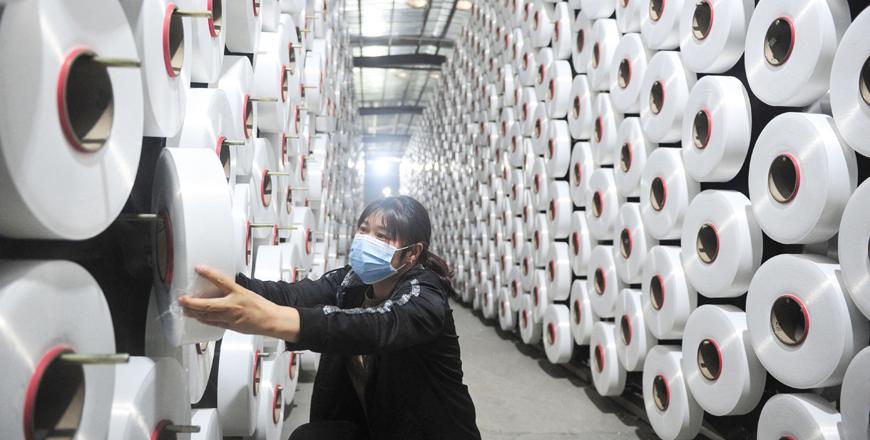You are here
China retail sales plunge in November on COVID woes
By AFP - Dec 15,2022 - Last updated at Dec 15,2022

This frame grab from AFPTV video footage shows an inside view of a shopping mall in Beijing on Tuesday (AFP photo)
BEIJING — China's retail sales plunged last month, official data showed Thursday, as COVID restrictions and a property market crisis hammered the world's second-largest economy.
The figures highlight the work ahead for the government as it moves away from almost three years of strict containment measures that have whittled growth and sent shudders through supply chains.
November retail sales sank 5.9 per cent on-year, marking the second successive contraction, according to data released by the National Bureau of Statistics (NBS).
The figure was also much worse than the 4 per cent shrinkage forecast in a survey by Bloomberg News.
The data also showed industrial production grew 2.2 per cent on-year last month, less than half October's rate, while unemployment rose 0.1 percentage point to 5.6 per cent.
China was the last major economy persisting with a zero-COVID strategy through harsh lockdowns and mass testing, with authorities effectively abandoning the policy only last week after suffering an economic slowdown and mounting public anger.
November saw some of the highest infection numbers ever recorded in China, with as much as a quarter of the population under some form of lockdown by the end of the month, according to analysts' estimates.
"In November, local outbreaks spread to most provinces across the country, residents' travel decreased and consumption scenarios were restricted," NBS statistician Fu Jiaqi said in a statement.
"The sales of non-essential goods and gathering-based consumption were significantly affected," Fu said.
"While the move away from zero-COVID lays the groundwork for an eventual recovery in activity down the line, the transition period will prove quite disruptive," Julian Evans-Pritchard and Zichun Huang, economists at Capital Economics, said in a note on Thursday.
The economists predicted subdued economic performance in December and warned of declined activity as "many households try to minimise in-person interactions during the reopening wave of infections".
But "reopening is happening much faster than the market expected two months ago, hence the transition period is likely to be shorter", Zhiwei Zhang, chief economist at Pinpoint Asset Management, wrote in emailed comments Thursday.
Chinese leaders have set an annual economic growth target of about 5.5 per cent, but many observers think the country will struggle to hit it, despite announcing a better-than-expected 3.9 per cent expansion in the third quarter.
A crisis rippling through China's massive property sector has also weighed on the economy, with developers defaulting on loans and struggling to raise cash after Beijing imposed widespread lending curbs in 2020.
Related Articles
BEIJING — China's economic growth accelerated in the first quarter of the year to 4.8 per cent, official data showed on Monday, but the gove
BEIJING — China logged its slowest economic growth since the initial COVID outbreak on Friday, expanding just 0.4 per cent in the second qua
BEIJING — China's retail sales growth weakened last month, official data showed on Monday, missing forecasts as demand remains muted in the












